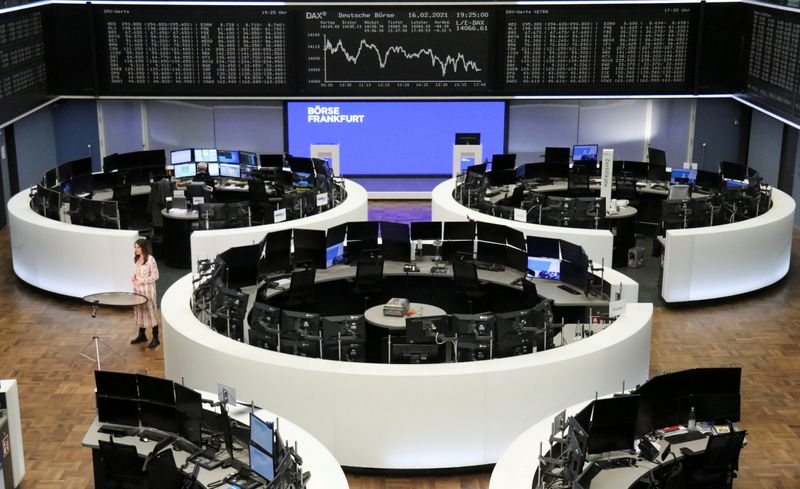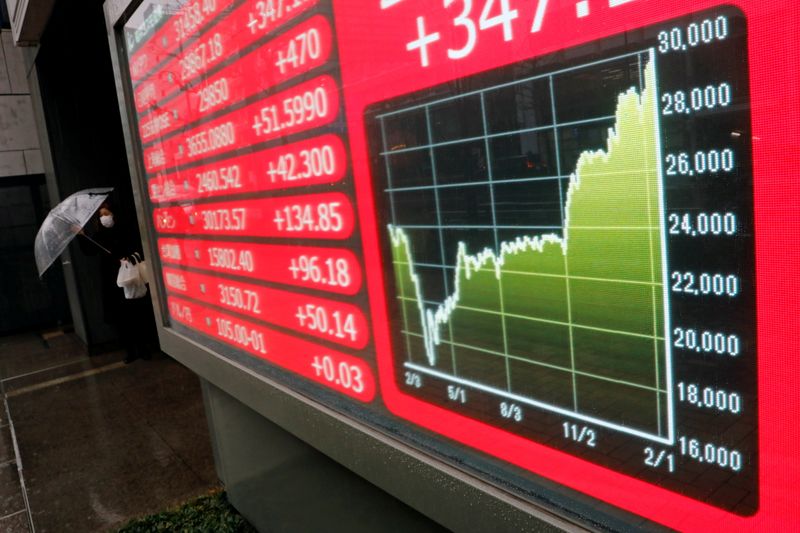By Marc Jones
LONDON (Reuters) - World stocks were battling to avoid a second day of declines on Thursday as hints of rising inflation led by a one-year high in oil prices and the strongest copper prices in nearly a decade kept traders in check after a boisterous run up.
Europe's share markets managed to scrape together some early gains as commodities bulls drove drillers and miners up 2.5% to offset disappointing earnings numbers from companies including Airbus and Orange.
Wall Street futures were stuck in the red, though, and most of Asia's indexes had dipped overnight. China returned from its Lunar New Year holiday to the sight its central bank draining 260 billion yuan ($40.31 billion) from money markets, raising concern about backdoor policy tightening.
Government bond yields were taking a breather after the inflation-driven sell-off in global fixed income, although the commodities charge kept petro-currencies like the Canadian dollar, Norwegian crown and Russian rouble edging higher.
"The clear theme right now is the reflation rotations and gyrations in markets all over the place," said Arnab Das, Invesco's global market strategist .
Strong U.S. retail sales on Wednesday, signs the Federal Reserve plans to maintain its record low interest rates and a "go big" U.S. stimulus plan are all stoking optimism despite the coronavirus pandemic.
A deep freeze in Texas has continued to drive up oil prices too, as the unusually cold weather hampers output in the largest U.S. crude-producing state.
Brent crude topped $65 a barrel for the first time in over a year on Thursday. U.S. West Texas Intermediate crude rose to $61.80 a barrel. Both are up over 300% since last April.
Benchmark copper prices on the London Metal Exchange rose as much as 2.4% to $8,595 a tonne as well. That is their strongest level since April 2012 and nearly double what they fell to in March last year as COVID worries erupted.
Gold, considered an inflation hedge, snapped a five-day losing streak. Emerging-market stocks broke their longest winning streak since June as investors seized an opportunity to cash in some gains.
In South Africa, shares were set for their worst day in three weeks after a study showed that Pfizer (NYSE:PFE)'s vaccine might not be effective against the country's aggressive COVID variant.
The world's best-performing currency this year - the Turkish lira - climbed another 0.5% as the central bank maintained its 17% interest rates and reiterated it could raise them again if needed.

Graphic: Best and worst performing markets over the last wek - https://fingfx.thomsonreuters.com/gfx/mkt/jbyvrdmozve/Pasted%20image%201613644538590.png
